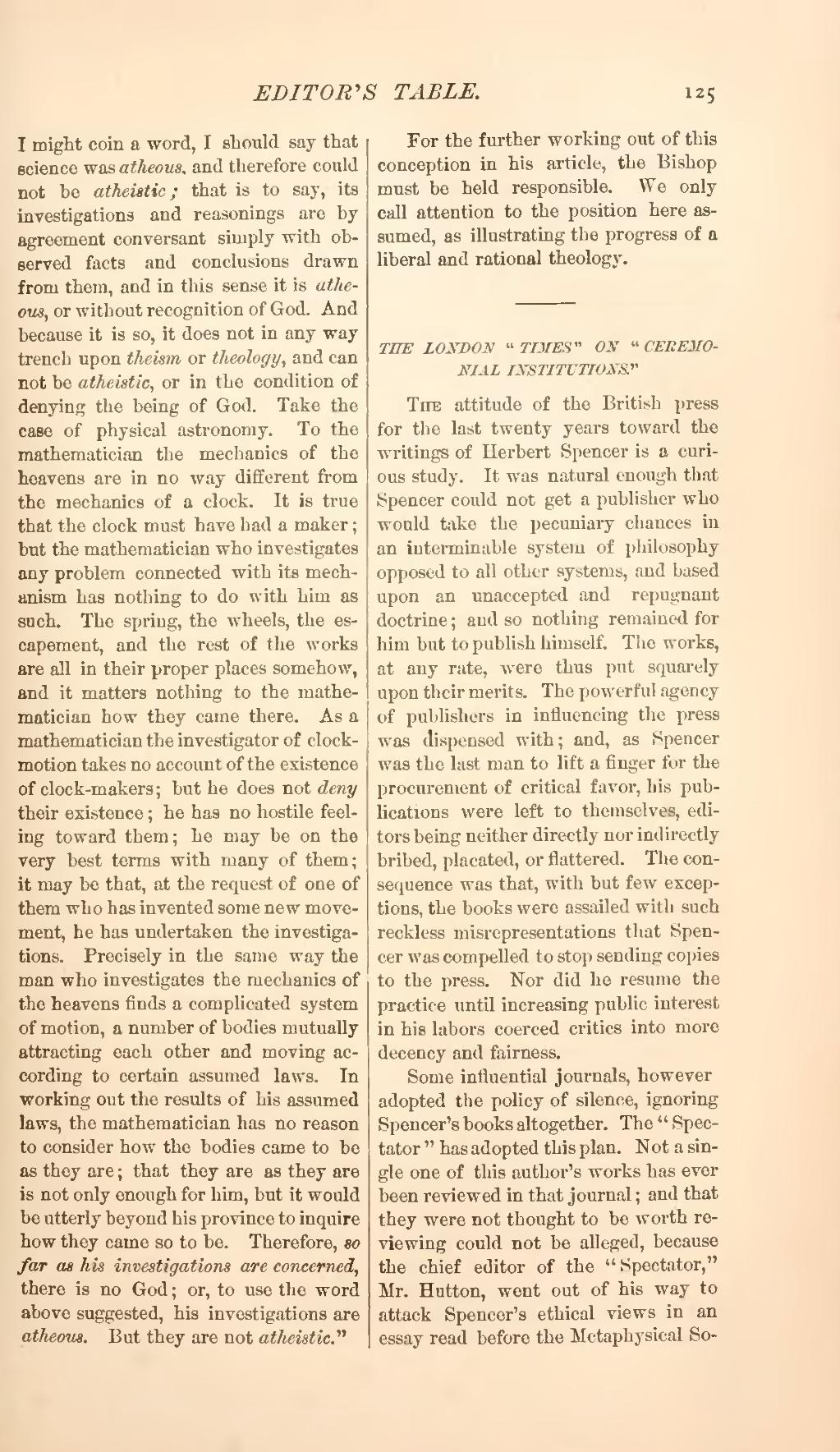I might coin a word, I should say that science was atheous. and therefore could not be atheistic; that is to say, its investigations and reasonings are by agreement conversant simply with observed facts and conclusions drawn from them, and in this sense it is atheous, or without recognition of God. And because it is so, it does not in any way trench upon theism, or theology, and can not be atheistic, or in the condition of denying the being of God. Take the case of physical astronomy. To the mathematician the mechanics of the heavens are in no way different from the mechanics of a clock. It is true that the clock must have had a maker; but the mathematician who investigates any problem connected with its mechanism has nothing to do with him as such. The spring, the wheels, the escapement, and the rest of the works are all in their proper places somehow, and it matters nothing to the mathematician how they came there. As a mathematician the investigator of clock motion takes no account of the existence of clock-makers; but he does not deny their existence; he has no hostile feeling toward them; he may be on the very best terms with many of them; it may be that, at the request of one of them who has invented some new movement, he has undertaken the investigations. Precisely in the same way the man who investigates the mechanics of the heavens finds a complicated system of motion, a number of bodies mutually attracting each other and moving according to certain assumed laws. In working out the results of his assumed laws, the mathematician has no reason to consider how the bodies came to be as they are; that they are as they are is not only enough for him, but it would be utterly beyond his province to inquire how they came so to be. Therefore, so far as his investigations are concerned, there is no God; or, to use the word above suggested, his investigations are atheous. But they are not atheistic.
For the further working out of this conception in his article, the Bishop must be held responsible. We only call attention to the position here assumed, as illustrating the progress of a liberal and rational theology.
THE LONDON "TIMES" ON "CEREMONIAL INSTITUTIONS."
The attitude of the British press for the last twenty years toward the writings of Herbert Spencer is a curious study. It was natural enough that Spencer could not get a publisher who would take the pecuniary chances in an interminable system of philosophy opposed to all other systems, and based upon an unaccepted and repugnant doctrine; and so nothing remained for him but to publish himself. The works, at any rate, were thus put squarely upon their merits. The powerful agency of publishers in influencing the press was dispensed with; and, as Spencer was the last man to lift a finger for the procurement of critical favor, his publications were left to themselves, editors being neither directly nor indirectly bribed, placated, or flattered. The consequence was that, with but few exceptions, the books were assailed with such reckless misrepresentations that Spencer was compelled to stop sending copies to the press. Nor did he resume the practice until increasing public interest in his labors coerced critics into more decency and fairness.
Some influential journals, however adopted the policy of silence, ignoring Spencer's books altogether. The "Spectator" has adopted this plan. Not a single one of this author's works has ever been reviewed in that journal; and that they were not thought to be worth reviewing could not be alleged, because the chief editor of the "Spectator," Mr. Hutton, went out of his way to attack Spencer's ethical views in an essay read before the Metaphysical So-

